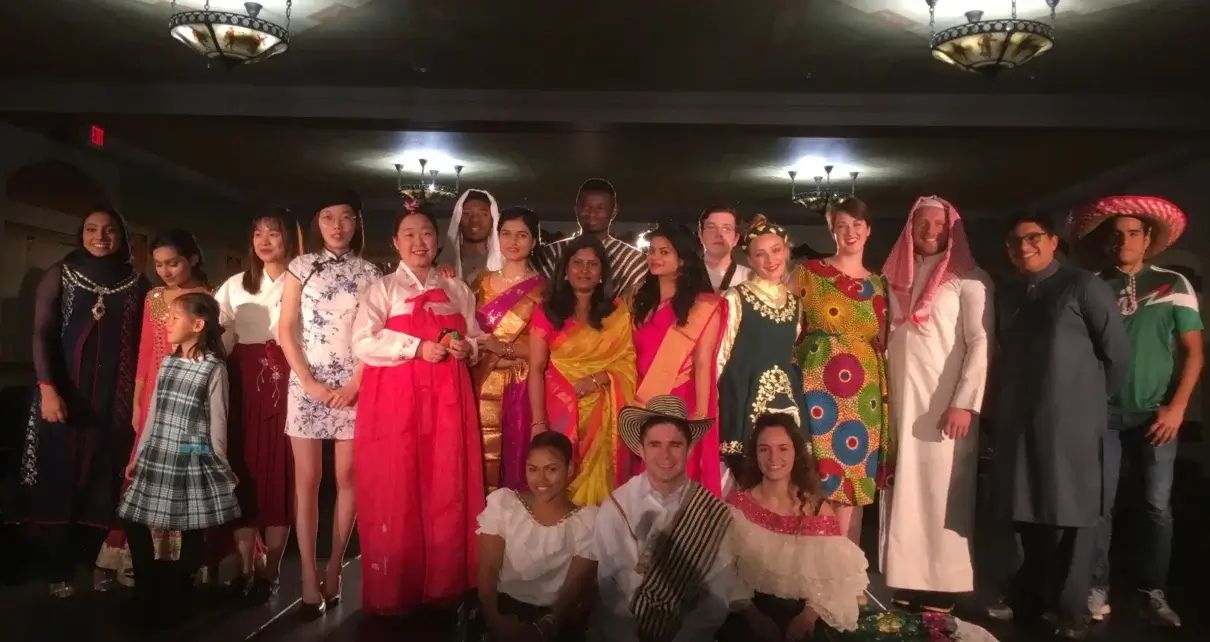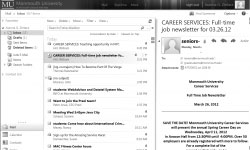The World Languages and Cultures Department will hold its annual World Languages Festival on Wednesday, Nov. 15, from 11:40 a.m. to 1 p.m. in the Great Hall auditorium. The event serves as a cultural opportunity for students and instructors to showcase their abilities in the language that they study by reading poems, doing brief cultural presentations, singing and dancing, or preparing ethnic dishes to share with the audience.
Julia Riordan-Goncalves, Ph.D., Chair of the Department of World Languages and Cultures and Director of Spanish for Business Minor, explained that the World Languages Festival started in 1996 under the direction of Priscilla Gac-Artigas, Ph.D., Professor of Spanish and Latin American Literature. “The Festival is a celebration of many languages and cultures, showcased by the incredible work done by our students,” Riordan-Goncalves continued. “It is an opportunity for World Language students to share what they’ve learned and shine in their talents. We have seen such incredible talent among our students over the years, in their songs, poems, presentations, videos, and dances.”
This upcoming World Languages Festival in particular will be the last one Gac-Artigas coordinates, as she plans to retire in June 2024. For the past 27 years, however, the Festival has given multi-lingual students the opportunity to display their talents in a language that feels most comfortable to them, according to Gac-Artigas. Though having started with most participants being students of Spanish, the Festival has grown to include students from all of the languages the Department of World Languages and Cultures offers: Arabic, Chinese, French, German, Italian, Latin, and, of course, Spanish.
“[The festival] represents a privileged moment for the students of languages to take the stage and the world as if it were theirs,” Gac-Artigas explained. “For many of them, it is not easy to express themselves in front of an audience in English… doing it in another language is an accomplishment of which they must be very proud. That means that they are ready to enter the globalized world with confidence. And as their professors, we feel happy for them and very proud as well.”
Not only does the Festival allow students to individually present their culture, but it also gives students an opportunity to simultaneously appreciate cultures different from their own. Melanie Ariza, an English student whose first language is Spanish, credits the Festival as a chance for attendees to gain this sort of knowledge. “What I believe a student would gain from attending this Festival is outside knowledge about other cultures and how unique each language is,” she said. “Cultural awareness is important, and this Festival is a great way to expand others’ insight on the value of diversity and the meaningfulness of all the beautiful cultures there are. It definitely can help broaden one’s perspective, and it helps students keep an open mind and learn new things they could enjoy from other cultures!”
Isabella Slape, a social work student fluent in English, Spanish, and ASL, also acknowledges the Festival as an opportunity for audience members to see cultures be authentically represented. She said, “Offering more cultural representation is very important. I am Mexican-American, and my culture makes me who I am. I love teaching the people around me about my culture and how beautiful it truly is. With all the right culturally appropriate representation, everyone will get the ability to see the world from my perspective and will be able to appreciate different cultures.”
Besides learning about other cultures, the World Languages Festival may also be an encouragement for students to learn another language themselves. This endeavor presents a number of benefits both personally and professionally, according to Riordan-Gonclaves. “[Learning another language] allows us to communicate and connect with many more people, and this could be an employer, a client, a new friend, or even our own grandparents This expanded ability to communicate and connect is an invaluable skill that our students can offer in the workplace,” Riordan-Gonclaves said. The World Languages and Cultures Department’s website itself cites careers in law, medicine, education, and more as being greatly enhanced by language study. Riordan-Gonclaves continued, “Also, learning another language provides cognitive benefits to people of all ages, sharpening our abilities to focus, learn, and remember. These benefits are enhanced further if we learn a third language or more.”
Marina Vujnovic, Ph.D., Professor of Journalism and a native of Croatia, said that learning a language is crucial to better understanding the different cultures throughout the world, and the World Languages Festival is the perfect opportunity to experience just that. “I think through language, like no other form, one can get closer to experiencing another culture other than their own. Our World Languages and Cultures Department is unique in that it doesn’t only teach language but provides a truly immersive cultural understanding of the world,” she said.
Vujnovic also emphasized the importance of investing in these sorts of departments in order to give students the most all-encompassing cultural experiences possible. She continued, “We need to invest in humanities and our language departments if we ought to build more culturally diverse universities that educate students to be global citizens capable of understanding different people, perspectives, and cultures. I hope that at Monmouth we will continue this important investment in our students, and with that in a better, more inclusive world.”
Slape succinctly concluded, “Language is how we make connections with everyone around us. It allows us to have a common ground with others and let them know they are truly being heard and validated.”




